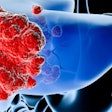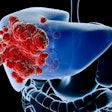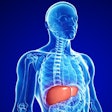
A diagnostic platform based on nanotechnology could help detect early-stage liver cancer in people who are at risk of the disease. Developers of the technology have received a U.S. grant worth $3 million to pursue further research.
The platform is called EV Click Chips, and the hope is that it will enable more effective purification of extracellular vesicles in blood from people with hepatocellular carcinoma. Researchers from the University of California, Los Angeles (UCLA) Jonsson Comprehensive Cancer Center have received a $2.97 million grant from the U.S. National Cancer Institute (NCI) to develop the technology further.
Liver cancer extracellular vesicles that are purified with EV Click Chips can then be subjected to molecular characterization, enabling the noninvasive detection of early-stage liver cancer from at-risk patients with liver cirrhosis.
It's important to trace tumor-derived extracellular vesicles because they are in circulation at early disease stages and persist across all disease stages, said Hsian-Rong "HR" Tseng, PhD, who is the lead principal investigator on the grant.
"But, they can sometimes be difficult to extract since a majority of extracellular vesicle in circulation are not of tumor origin, and high background noise makes the total extracellular vesicles analysis of limited diagnostic precision," Tseng said in a statement. "Our development will help us overcome this challenge."
EV Click Chips uses a multimarker "cocktail" that recognizes, enriches, and recovers extracellular vesicles secreted from the hepatocellular carcinoma tumor and then detects molecular contents in the purified extracellular vesicles. The UCLA group believes the diagnostic approach can be considered a type of liquid biopsy that's capable of noninvasive detection of early-stage hepatocellular carcinoma.
The NCI grant is the second of a similar scale awarded this year to the research team, which in addition to Tseng is led by Dr. Vatche Agopian, director of the Dumont-UCLA Liver Cancer Center.















